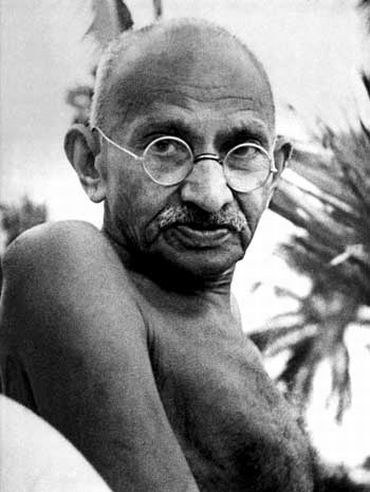 Freedom of speech and expression cannot be ‘absolute’, the Supreme Court on Friday said as it refused to reject criminal charges against an author for penning an alleged vulgar and obscene poem on Mahatma Gandhi in 1994.
Freedom of speech and expression cannot be ‘absolute’, the Supreme Court on Friday said as it refused to reject criminal charges against an author for penning an alleged vulgar and obscene poem on Mahatma Gandhi in 1994.
Putting vulgar and obscene words in the mouth of ‘historically respected personalities’ like Gandhi cannot pass the ‘contemporary community standards test’ meant to adjudge the obscenity of an alleged literary work, the apex court said.
The observation came in a judgment by which the court quashed criminal charges against bank employee Devidas Ramchandra Tuljapurkar for publishing the ‘vulgar and obscene’ poem on Gandhi in 1994 in an in-house magazine of which he was an editor.
"Freedom of speech and expression has to be given a broad canvas, but it has to have inherent limitations which are permissible within the constitutional parameters. We have already opined that freedom of speech and expression as enshrined under Article 19(1)(a) of the Constitution is not absolute in view of Article 19(2) of the Constitution.
We reiterate the said right is a right of great value and transcends and with the passage of time and growth of culture, it has to pave the path of ascendancy, but it cannot be put in the compartment of absoluteness. There is constitutional limitation attached to it...," a bench of justices Dipak Misra and P C Pant said.
The bench noted that the publisher published the poem ‘Gandhi Mala Bhetla’ in 1994 and ‘immediately’ after coming to know its impact, he tendered unconditional apology in the next issue of the magazine.
"Once he has tendered the unconditional apology even before the inception of the proceedings and almost more than two decades have passed, we are inclined to quash the charge framed against him as well as the printer.
"We are disposed to quash the charge against the printer, as it is submitted that he had printed as desired by the publisher. Hence, they stand discharged," the bench said.
The apex court quashed the criminal proceedings against Tuljapurkar who had published the poem in a magazine 'Bulletin' for private circulation among the members of All India Bank Association Union.
It, however, made it clear that it was not expressing any opinion on the charges framed against Marathi poet Vasant Dattatraya Gurjar, author of the poem, and it would be up to him to explain the ‘manner and the context’ in which he used the words against Mahatma in the trial court.
The court said, "However, we repeat at the cost of repetition that we have not expressed any opinion as to the act on the part of the author of the poem, who is co-accused in the case, and facing trial before the magistrate in respect of the offence punishable under Section 292 Indian Penal Code."
Tuljapurkar was made an accused in 1994 for publishing the poem under section 292 (sale, publication of obscene books) of the IPC.
A Pune resident and a member of 'Patit Pawan Sangthan', V V Anaskar, had moved the Pune commissioner of police alleging that the poem was obscene and lowers the image of the father of the nation.
While accepting that ‘creativity has no limitation’, the court said that in case of ‘historically respected personalities’ the author needs to take a cautious approach.
"The question would be whether the dramatist can contend that he has used them as symbolic voices to echo the idea of human fallacy and it's a creation of his imagination; and creativity has no limitation and, therefore, there is no obscenity.
"But, there is a pregnant one, the author has chosen historically respected persons as medium to put into their mouth obscene words and, ergo, the creativity melts into insignificance and obscenity merges into surface even if he had chosen a 'target domain'," it said.
The court further said that when the name of Mahatma Gandhi is used as ‘a symbol, speaking or using obscene words, the concept of 'degree' comes in’.
"To elaborate, the 'contemporary community standards test' becomes applicable with more vigour, in a greater degree and in an accentuated manner.
"What can otherwise pass of the contemporary community standards test for use of the same language, it would not be so, if the name of Mahatma Gandhi is used as a symbol or allusion or surrealistic voice to put words or to show him doing such acts which are obscene," the bench said.





